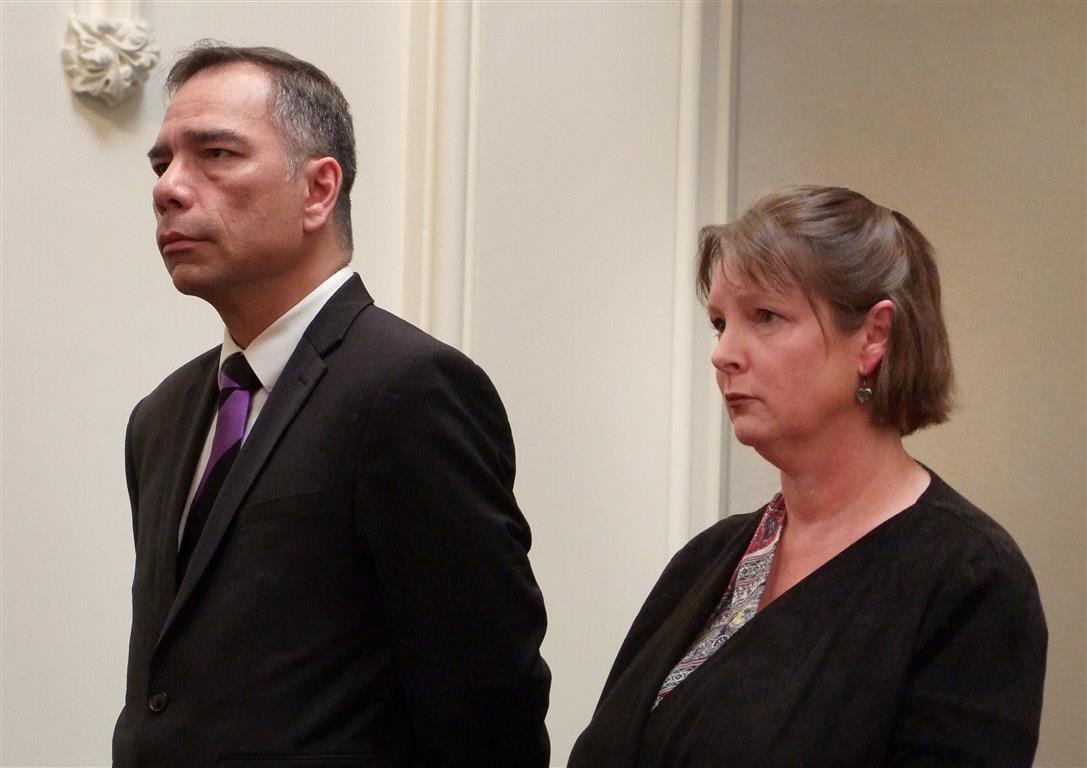A manager who swindled the University of Otago out of more than $220,000 left his stunned colleagues feeling “dirty and tainted”, a court has heard.
Gavin Marcus Bainbridge (49) and his wife Karen Ailsa Bainbridge (47) appeared in the Dunedin District Court today after pleading guilty to causing loss by deception and were each sentenced to 10 months' home detention, despite Crown prosecutor Chris Bernhardt arguing for imprisonment.
The former was employed as a senior manager in the university’s IT department in 2017 and though his wife did not work there, she became an integral part of the scam, setting up a fake IT company which posed as a contractor through which they siphoned funds.
“No one knows where the money has gone,” Judge Michael Turner said.
The motivation for the fraud remained unclear, he said, as the duo had exercised their right to silence when questioned.

It did not appear to have been spent on maintaining a lavish lifestyle, as was usually the case, the judge noted.
University of Otago chief operating officer Stephen Willis detailed the immense impact the offending had had on a range of staff, which some compared to a tsunami sweeping through campus.
They described Gavin Bainbridge's manipulative management style which involved making “brutal and quick assessments” of those under him and giving them projects above their capabilities.
He would call them “morons and muppets”, the court heard.
The defendant established his reputation as a good church-going Christian, but that was not a true reflection of who he was.
When Gavin Bainbridge was “marched off campus”, one of his co-workers said they almost cried with happiness.
The pair, the court heard today, had repaid $80,000.
It was revealed this afternoon that the Bainbridges had nearly $150,000 in superannuation accounts in Australia but that money could not be transferred to New Zealand and withdrawn to satisfy the debt.
Gavin Bainbridge's counsel Sarah Saunderson-Warner said the law was clear on that point.
“If I can [withdraw the superannuation funds], I will,” said the defendant from the dock.
Ms Saunderson-Warner said her client was adamant the enterprise did not begin with fraudulent intent.
In October 2018, Karen Bainbridge set up a company called “Studio-Us” in her maiden name Morton, “to appear as an agency designing online software”, court documents said.
Three months later, Gavin Bainbridge established the firm as a new creditor and supplier to the university.
No conflict of interest was raised.
The first invoice — for $13,800 — was sent by Karen Bainbridge in March 2019 and paid a few weeks later.
By August, the stakes were raised.
She filed another three invoices, referring to “E-learning modules”, for a total of $144,900.
Gavin Bainbridge forwarded the documents to the university’s crediting department.
In total, $227,700 was paid to Studio-Us.
“No work has been provided to the University of Otago for the invoices which have been paid,” a police summary said.
An investigation found the money paid to the Studio-Us account was transferred to five joint accounts operated by the Bainbridges.
The judge said it was a moderately sophisticated scam which represented a “gross breach of trust”.
Karen Bainbridge's counsel Alan de Jager admitted his client was a “very important part” of the fraud but argued she played a lesser role than her husband.
Judge Turner said the couple were equally culpable.
“This was a joint criminal enterprise for the parties for their joint benefit,” he said.
The defendants, who had no previous convictions between them, still owed a total of $171,052 but the judge said repaying that when they were now unemployed was impossible.
They were each also sentenced to 400 hours' community work (the maximum such sentence) and ordered to repay a further $2800.
The full amount may be pursued civilly by the university, Judge Turner said.
In a statement released after sentencing, Mr Willis said that after Mr Bainbridge was dismissed, Deloitte conducted a detailed fraud analysis.
"The university maintains meticulous financial transaction auditing procedures, and is taking up recommendations for ongoing evolution of its systems and procedures," he said.
"While dishonest activity is a threat to any organisation, the university is confident any such behaviour will inevitably be discovered through robust auditing, fraud awareness and vigilance of staff."
Mr Willis said staff had been offered support since the crimes had been discovered.
"His offending betrayed the trust of the university for hiring him in such a senior role which involved implementing controls and checks within Information Systems. His dishonest behaviour is hugely disappointing."











